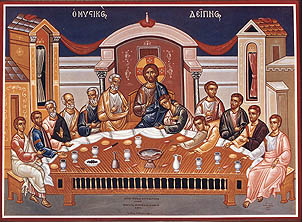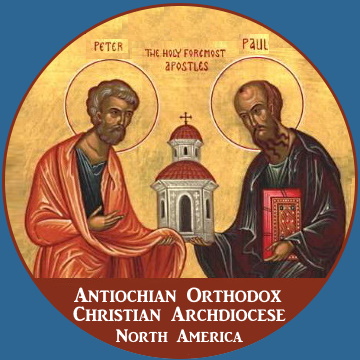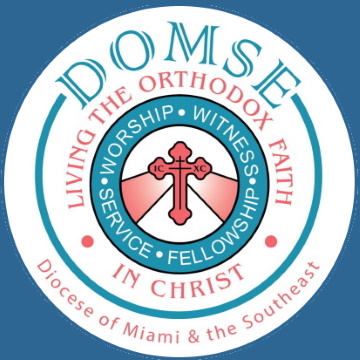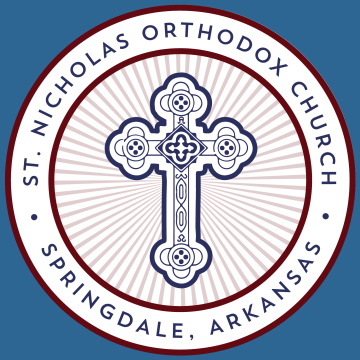First Saturday in Great Lent
Kathisma 3 (Psalms 17-23)
“For though I walk in the midst of the shadow of death, I will fear no evil, for Thou art with me; Thy rod and Thy staff, they have comforted me. Thou hast prepared a table before me in the presence of them that afflict me.” (Psalm 22)
 This Psalm is part of the Preparation of the Eucharist. Christians have traditionally understood Psalm 22 to be speaking of Christ and His Holy Body and Blood in the Eucharist. But what is it that He prepares this table before me in the presence of them that afflict me?
This Psalm is part of the Preparation of the Eucharist. Christians have traditionally understood Psalm 22 to be speaking of Christ and His Holy Body and Blood in the Eucharist. But what is it that He prepares this table before me in the presence of them that afflict me?
It is the nature of the Church to participate in something future and eternal – the Eternal Kingdom of God and the endless Day of the Lord – right now. We use a Greek word to describe it: prolepsis. It means literally ‘to receive something beforehand,’ but it is usually translated into English as ‘now but not yet.’
The Eucharist really is the Marriage Supper of the Lamb in His Kingdom which has no end, and in the eternal Day of the Lord, there will be no enemies around. Part of the mystery of the Eucharist (and of all the Mysteries), however, is that Christ has made that future Day to dawn ahead of time in Himself and in His Church. Because of this mystery, we are able to sit at the Table prepared for us unto eternity, and we are able to sit at that table now, even while we are surrounded by enemies.
Look around. See all the works of evil men, of devils, of death and decay. This world and age is collapsing. The shadow of death hangs like a pall over this present age. While the old is falling apart, though, the new is breaking in. Christians who are new creations gather together to participate in a mystery that transcends time. Eternity invades time and Christians gather with all the angels and archangels and all the host of the heavens to celebrate and offer up the great thanksgiving.
Tomorrow morning we will eat and drink at the table prepared in the presence of our enemies, and in the valley of the shadow of death, the Life of the World will give Himself to us. Countless martyrs throughout the ages have praised God in chains and have sung hymns as they died. They were participating in the endless worship of the Lord’s Day, given to them as a gracious gift out of time. They received eternity before they received it. Now and not yet. Tomorrow you too will join in that worship and receive it out of time. Don’t take it for granted; Christ has prepared the Table for you.




